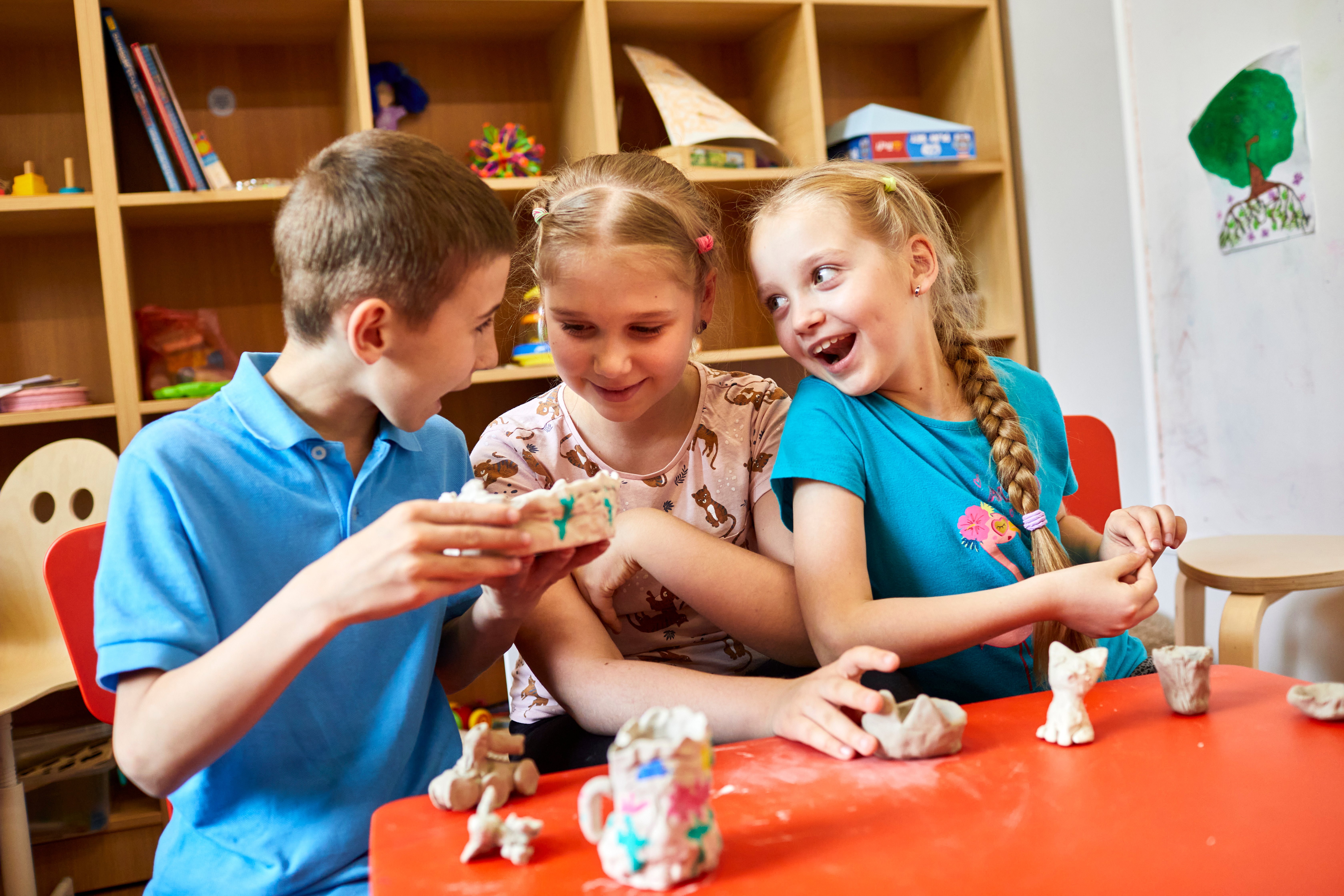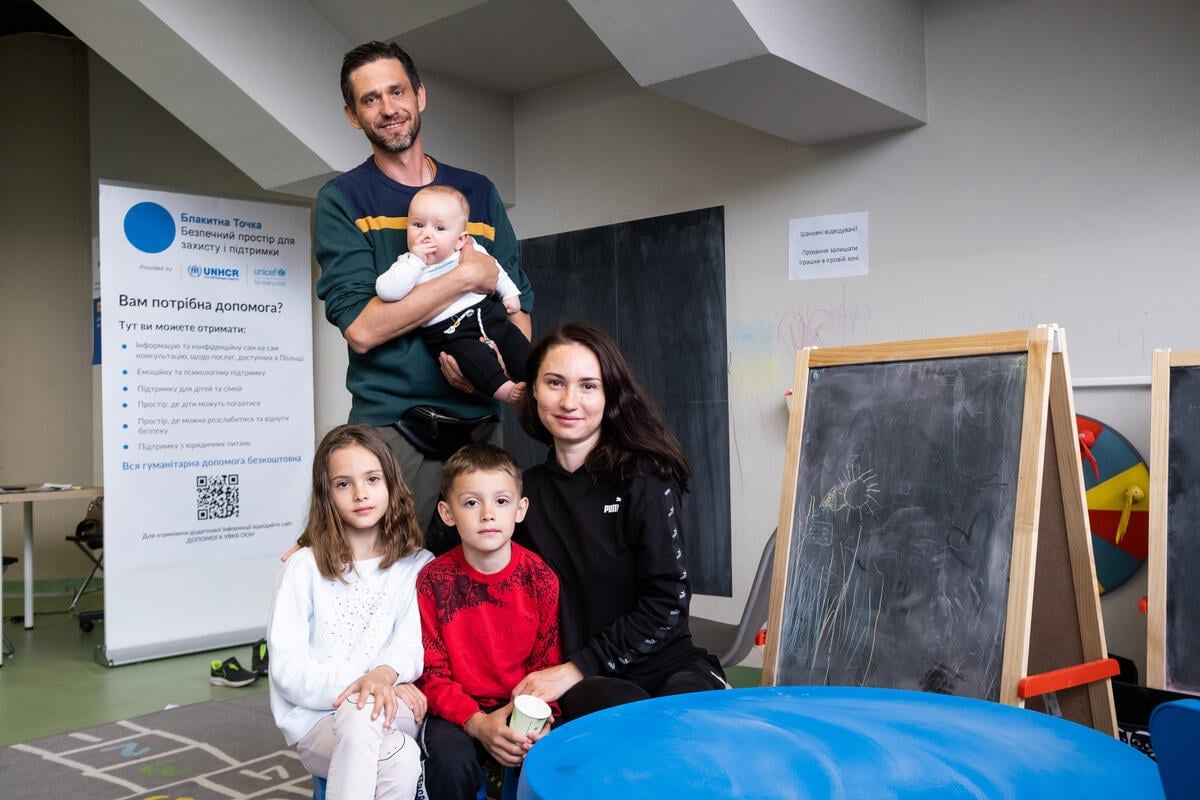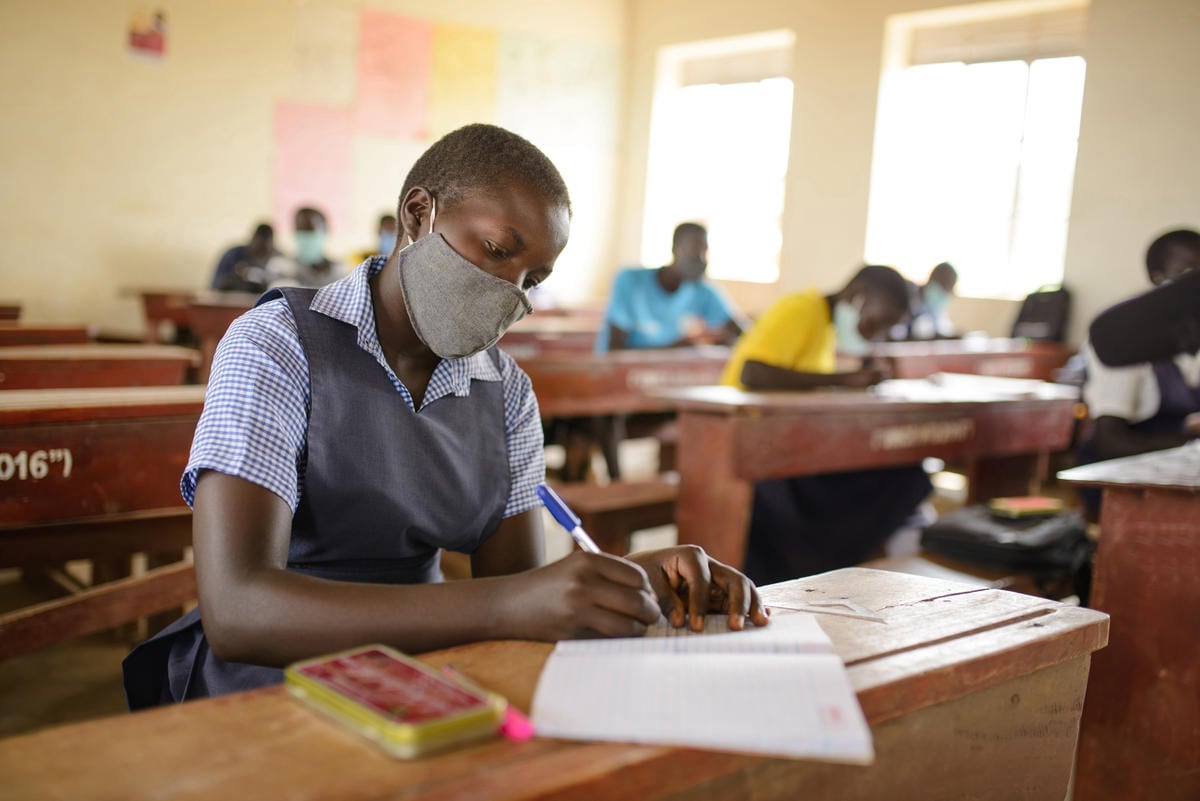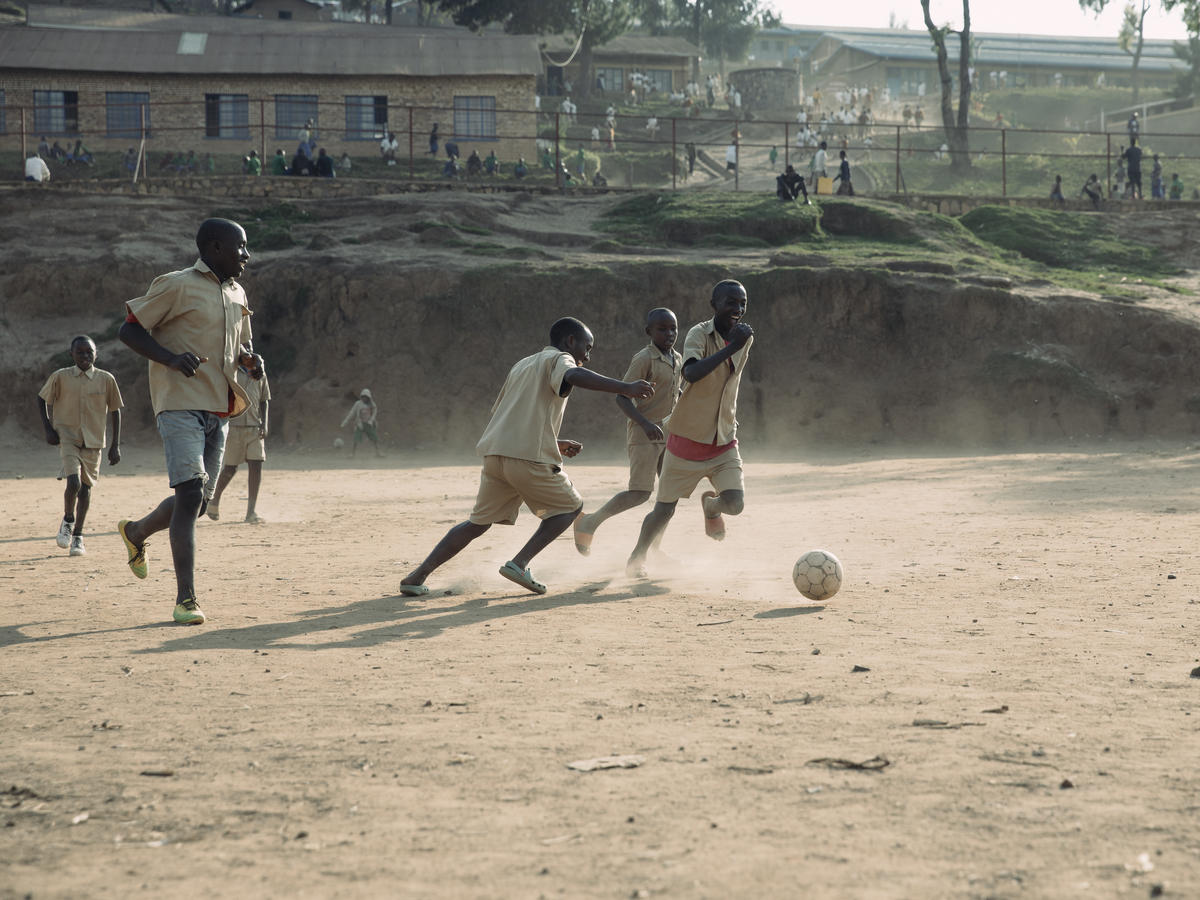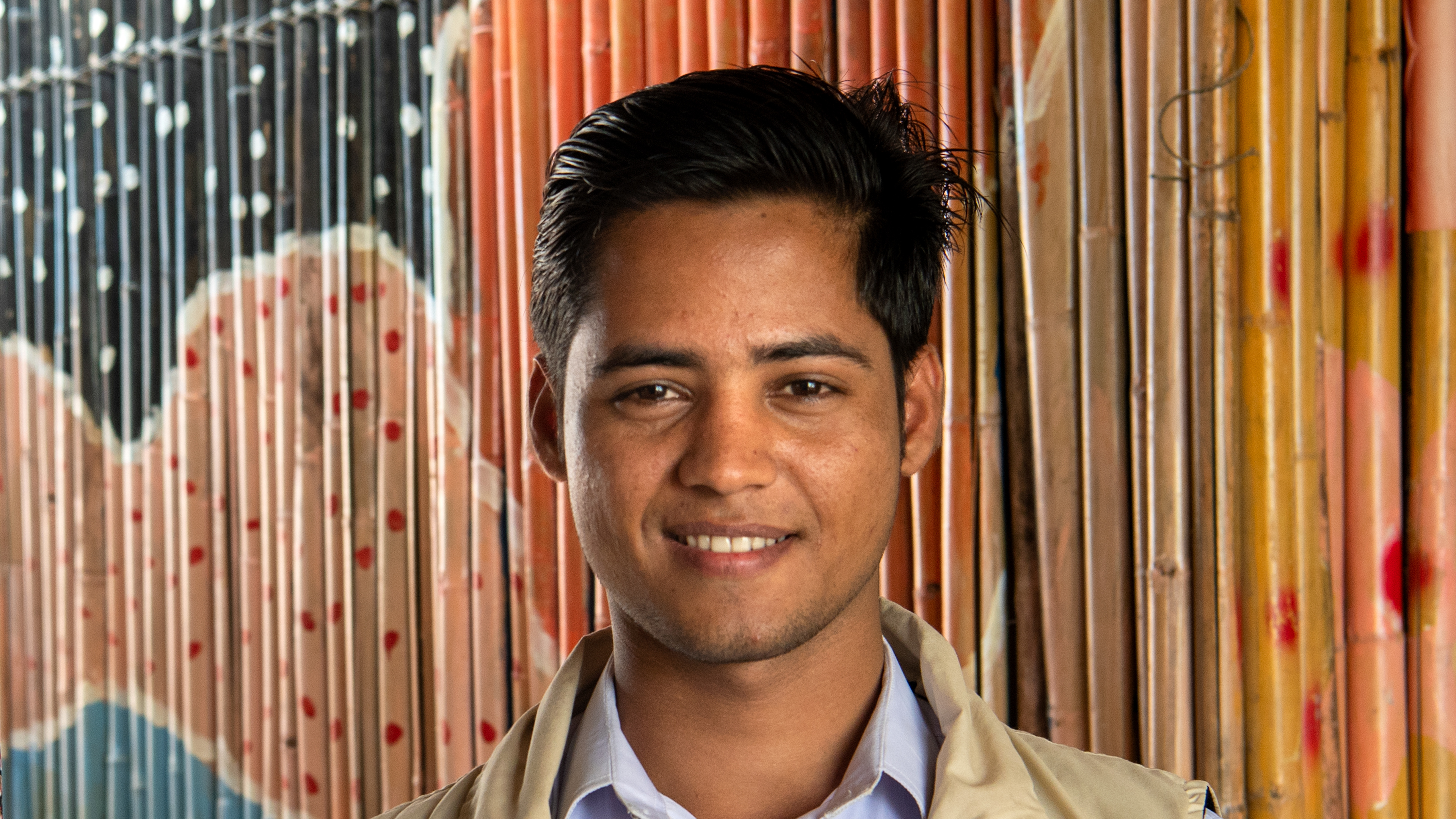War: creating a lifetime of nightmares for children
War: creating a lifetime of nightmares for children

QUETTA, Pakistan, July 17 (UNHCR) - Adults make wars, while children first think it is a game, watch colourful explosions in the distance, draw pictures about it - and then suffer nightmares.
The current conflict in Swat, in Pakistan's North West Frontier Province (NWFP), has changed the lives of many children, leaving them with deep and lasting psychological wounds. After having grown up beside the wars in Afghanistan, I know what they are experiencing.
In a small, spartan room at a Sikh temple in the north, internally displaced mothers tell me how the latest conflict has affected their children. "They have become very sensitive, they hide when they hear any loud sounds and wake up screaming in the middle of night, but I'm glad we managed to escape and hope they will get back to normal soon," says 35-year-old Misha.*
In the scorching heat of Yar Hussain camp in the Swabi district of NWFP, the words of displaced mothers are the same; the children play war games and draw while the women speak of fleeing. It brings back my own memories of when the war in neighbouring Afghanistan was at a peak - and how it permanently affected me.
I was born in the southern Pakistani town of Chaman, on the border with Afghanistan, and later moved to Quetta. I and the Afghan crisis grew together.
From my grandfather's house near the border, we could easily see the Afghan side. As a normal child, I was fascinated by the deep orange and yellow flames beneath clouds of black smoke in the distance. We fearless children would gather every evening, waiting cross-legged on big concrete blocks in front of my grandfather's house for the explosions.
"Come, here it goes," my cousin's voice would follow the blast of a landing rocket or a mortar bomb exploding; we would jump up and run to see the flames more clearly.
But the excitement of seeing explosions across the border was replaced by a war phobia - a fear that still provokes nightmares in which aircraft drop bombs, people run for their lives, tanks like monsters swallow everything in their way. Everybody is dead, everything is levelled and I'm left all alone. Before the last bullet hits me, or a tank spots me, I wake up, my heart pounding.
As I grew up I became aware of strange-looking people with missing limbs. They were everywhere: hospitals in Quetta were thronged with disfigured faces and crawling human beings.
On trips to Chaman, I saw turbanned men and even children my age, with hands and arms missing. I would wonder who they were and what had happened. I heard people call them "panahgazeen," meaning refugees. But who, I would wonder, are refugees and what are they doing here.
There was a Refugee Hospital across the street from our house, where I would sometimes go with my grandmother. Desperate mothers sat beside children bandaged in white from head to toe, with red spots of fresh blood. I asked my grandmother if these small children with missing limbs were also panahgazeen. "Yes," she told me, "There is a war in their country. Fighter jets dropped bombs on their houses."
Refugee stories, some reality, others myth, started affecting me. Stories of children being kidnapped or separated from parents were the most frightening. I began to hate visiting Chaman, which had become a base for Afghan mujahideen.
Even a single shot would frighten me. When shelling started, I would cling to my grandmother, eyes closed so tight they hurt. She placed her hands over my ears so I couldn't hear the blasts of rockets. The sound of hovering aircraft made my blood run cold.
I have never been a direct victim of war, but horrific images from my childhood still jolt me awake, shaking, in the middle of the night. Each nightmare reminds me of the victims of war - children, women, the elderly - who have lost everything. The voices of those suffering in this latest fighting tell us yet again: it is the responsibility of us all to work for a world without wars - a peaceful world where children never suffer.
By Duniya Aslam Khan in Quetta, Pakistan


